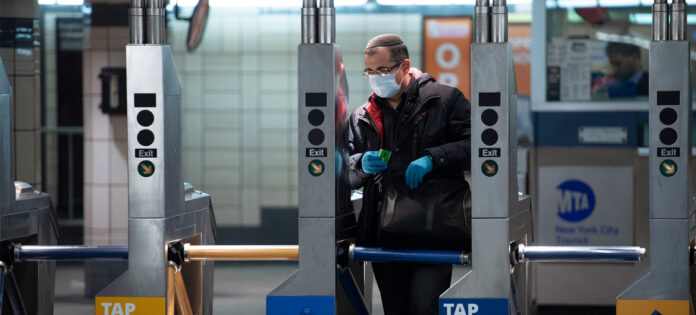Eight months into the COVID-19 pandemic, countries want to “get their economies going again”, the head of the World Health Organization (WHO) said on Monday, advising on the measures that governments, communities and individuals should take, to do so safely.
“If countries are serious about opening, they must be serious about suppressing transmission and saving lives”, said WHO chief Tedros Adhanom Ghebreyesus, briefing reporters from Geneva. “Opening up without having control, is a recipe for disaster.”
While this may seem an impossible balance, it can be done if countries are in control of transmission, he said. The more control they have, the more they can open.
The reality is that coronavirus spreads easily, he said. It can be fatal for people of all ages and most people remain susceptible.
To control transmission, he said it is essential to prevent events that lead to outbreaks. COVID-19 spreads efficiently among clusters of people, with explosive outbreaks linked to gatherings at places such as sports stadiums, nightclubs and places of worship.
At the same time, there are ways to hold gatherings safely, Tedros said. Decisions about how and when must be made with a risk-based approach, tailored to local conditions.
Tedros said countries experiencing significant community transmission may need to postpone such events. Those seeing sporadic cases or small clusters, on the other hand, can find creative ways to hold events while minimizing risk.
He advocated a focus on reducing deaths by protecting the elderly, people with underlying conditions and essential workers. Countries that do this well may be able to cope with low levels of transmission as they open.
Individuals must play their part by staying at least one metre away from others, cleaning their hands regularly, practicing respiratory etiquette by wearing a mask and avoiding close-contact settings.
For governments, widespread stay-at-home orders can be avoided if they take temporary, geographically targeted interventions. It is important to find, isolate, test and care for COVID-19 cases – and both trace and quarantine contacts.
The UN health agency chief said WHO has a range of evidence-based guidance that can be applied in different transmission scenarios, most recently for hotels, cargo ships and fishing vessels.
Meanwhile, the agency is working with its partners through the ACT Accelerator and COVAX Global Vaccines Facility to ensure that a vaccine, once developed, is available equitably to all communities. He thanked the European Commission, which announced today it would join the COVAX Facility, for its €400 million contribution.
To be sure, all countries are under extreme pressure, he declared. A WHO survey on the impact of COVID-19 on health systems in 105 countries found that 90 per cent of those surveyed have experienced disruption to their health services, with low- and middle-income countries reporting the greatest difficulties.
Most nations reported that routine and elective services have been suspended, while critical care – such as cancer screenings and treatment, and HIV therapies – have seen high-risk interruptions in low-income countries.
While many countries are now implementing WHO-recommended strategies to mitigate service disruptions, only 14 per cent have reported the removal of user fees, which WHO recommends, offsetting potential financial difficulties for patients.
He said WHO is also developing the COVID-19 Health Services Learning Hub, a web-based platform that will allow countries to share their experiences.







